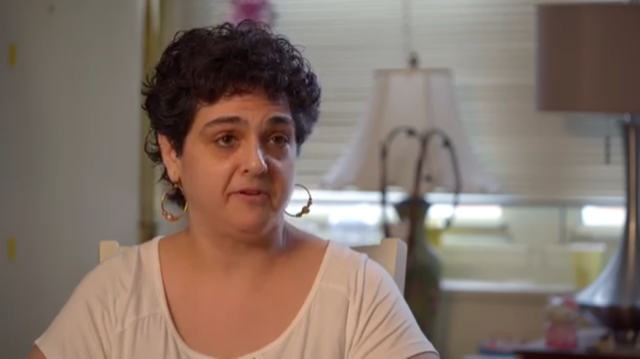Psych Patients In Connecticut File Class Action For Civil Rights Violations
Kathleen M. Flaherty - Executive Director, Connecticut Legal Rights Project, Inc.
Imagine being in and out of psychiatric hospitals for 24 years of your life. Imagine finally being ready for discharge, but delayed for months because of inadequate funding and staff. Imagine the staff saying that you’d never make it in the community.
It happened to Karen, who testified: “When I was getting discharged from Connecticut Valley Hospital, there were money and staffing problems that delayed me from getting out. Hospital staff were worried that there wasn’t enough money to get me the staffing that would keep me safe.... On the Thursday I was supposed to be discharged, staff were telling me I would be back by the next Monday.” Her full testimony is available here.
Civil commitment for treatment at a psychiatric hospital represents a profound deprivation of one’s liberty. I know, because it happened to me in my first year of law school. In the fall of 1990, the local district court judge ordered that I be civilly committed to McLean Hospital for a period not to exceed six months. My student health insurance from Harvard Law School included coverage for 60 days of inpatient psychiatric hospitalization. I was discharged on the 60th day, and returned to school the following year. In the summer of 1992, I interned at the Connecticut Legal Rights Project (CLRP), a nonprofit legal services agency that provides representation for low-income people with mental health conditions to protect their civil rights.
Karen testified: "On the Thursday I was supposed to be discharged, staff were telling me I would be back by the next Monday.”
Fast forward 26 years, and I am privileged to be CLRP’s Executive Director. Earlier this year, with support from the Impact Fund, our organization filed a class action lawsuit, Drummer v. State of Connecticut et al, against the state of Connecticut, its Department of Mental Health and Addiction Services (DMHAS), and the inpatient facilities operated by DMHAS for violations of civil rights protected by the Patients’ Bill of Rights and the state constitution.
Connecticut law, unlike that of most other states, allows for civil commitments of indefinite length. If a probate court finds that an individual has psychiatric disabilities and is dangerous to themself or others, or is gravely disabled, the court will order confinement for the duration of such psychiatric disabilities, or until they are discharged or converted to voluntary status. Individuals who are subject to a civil commitment order are entitled to an annual clinical review by a doctor and to a full judicial due process review by a probate court judge once every two years.
Connecticut used to operate three large psychiatric institutions, each holding thousands of patients, Connecticut Valley Hospital (above) is still open.
We assert that this statute is unconstitutional under Connecticut’s state constitution. In 1977, the Connecticut Supreme Court ruled in Fasulo v. Arafeh, 173 Conn. 473 (1977), that the previous civil commitment statute was unconstitutional because it placed the burden on the committed patient, rather than the psychiatric facility, to request a judicial hearing when the individual no longer meets the legal standard for civil commitment. It is our position that the current statute fails to comply with the substantive due process constitutional right to liberty, established by that court decision, as soon as the person no longer meets commitment standards. We are asking the court to declare that portion of the civil commitment statute unconstitutional and to order the state to establish policies in state-operated inpatient psychiatric facilities to ensure timely periodic reviews.
We are also challenging the state’s violation of patients’ rights to receive treatment in the most integrated setting. People with mental health conditions are unnecessarily institutionalized in state-operated inpatient psychiatric facilities because of a lack of community supports and services, including supportive housing. Connecticut used to operate three large psychiatric institutions, each holding thousands of patients. When two of the large state facilities were closed during the 1990’s, there was a promise made to re-invest the savings generated by the closure of these large hospitals into the community-based system of care. That promise was never kept. Multiple reports in the intervening decades, including the Governor's Blue Ribbon Commission report and the Sandy Hook Advisory Commission Report, have recommended additional funding.
It is our position that the Patients’ Bill of Rights incorporates the civil right of community integration under the ADA per Olmstead v. L.C., 527 U.S. 581 (1999). Therefore, the state should be required to create capacity for residential services in the community so that a person is discharged to the most integrated setting appropriate with their needs within a reasonable time. The lawsuit asks that the court order the state to: establish an integration plan and budget ; and adequately fund community supports and services pursuant to that plan.
This litigation is in its infancy. We anticipate that this will take time in court. In the meantime, we are profoundly gratified to observe that the state is finding a way to discharge patients to community placements more quickly than they have done so in the past, even at a time when state resources are limited. Every legislative session, advocates testify in support of the Department’s budget, explaining how vital these services and supports are to maintaining their recovery.
At the time Karen Healy testified in 2017, she had been in the community for over two years. She is still there. “I have been successful in the community… thanks to CLRP and DMHAS helping me get the funding and the staff to keep me in my own apartment instead of costing the state more by keeping me at Connecticut Valley Hospital. I now have more time with my family. I have a job. I volunteer. That’s why people in the legislature need to think about the impact their choices will have on more people like me.”





